π
2010-06-18 00:00
in Computers, Electronics, Linuxha, Solar
So, isn't it a bit ironic that if I have solar panels that power my entire house and then some during the day, if PG&E power goes off, my inverter has no choice but to shut off too, likely both because it uses PG&E as a phase offset source, and because it would likely be bad to feed power on a down PG&E line (or at least would make it harder for PG&E to diagnose, not counting the fact that the power grid acts as a regulator in case there is too much or not enough power).
Anyway, I wanted to have power a bit longer than 10mn when PG&E power went out, so I looked into UPS solutions while powering from a Marine or a AGM (Absorbed Glass Material) battery, both being better options than a car battery (car batteries are not meant to be deep cycled or use for extended periods of time and they do put out hydrogen when you charge them, which is undesireable inside a house).
Interesting bits I found out:
This page http://www.type2.com/library/electrip/battbas.htm has decent battery info, and this one gives a bit more about AGM batteries http://www.windsun.com/Batteries/Battery_FAQ.htm . Yet, even marine or AGM batteries are not meant to be discharged at high rate. If you do, they may not even put out half their rated capacity.
UPSes aren't meant to be used as inverters for long time power off situations. Some will actually use more than one battery (increases voltage, decreases amps, which is good for lowering draw, but makes it a pain when you need multiple big matching marine batteries).
Drawing 1400VA from an APC UPS at 24V is about 60A! That's about 3-4 times what the average copper wire going to your house outlet is supposed to carry. These pages: http://en.wikipedia.org/wiki/American_wire_gauge and http://www.powerstream.com/Wire_Size.htm give some guidelines, but long story short, you need a very thick wire to carry that many amps over more than 10cm without heating up your wires (never good) and wasting a lot of power through resistive loss.
I first quadrupled up my initial wire but then realized that it only took me from 18 gauge to 12 gauge, which was a bit low, so doubled that up with a cable I cut off from a jumpstart cable (that one was plenty thick, it was more an issue to solder it to the rest due to how massive it was and how underpowered my soldering iron was for the job).
In the end, I got a couple of mostly matching AGM batteries and went ahead with those for my 24V APC 1400 SmartUPS. I know my runtime wouldn't be fantastic but good enough considering (at least until I can find another free marine battery :) ).
At 400W of actual use, that was 40% of the load for the APC 1400 inverter and a self test estimated that I would get about 1H of runtime, which gave 16Ah usable for my AGM batteries instead of about 55Ah at a lower draw (when new, and they were not new). It's a bit disappointing on one side, but on the other side, 1H of runtime for my computer gear ain't too bad, especially for AGM batteries that cost $20 a pieces (cheaper than the stock 7Ah batteries).
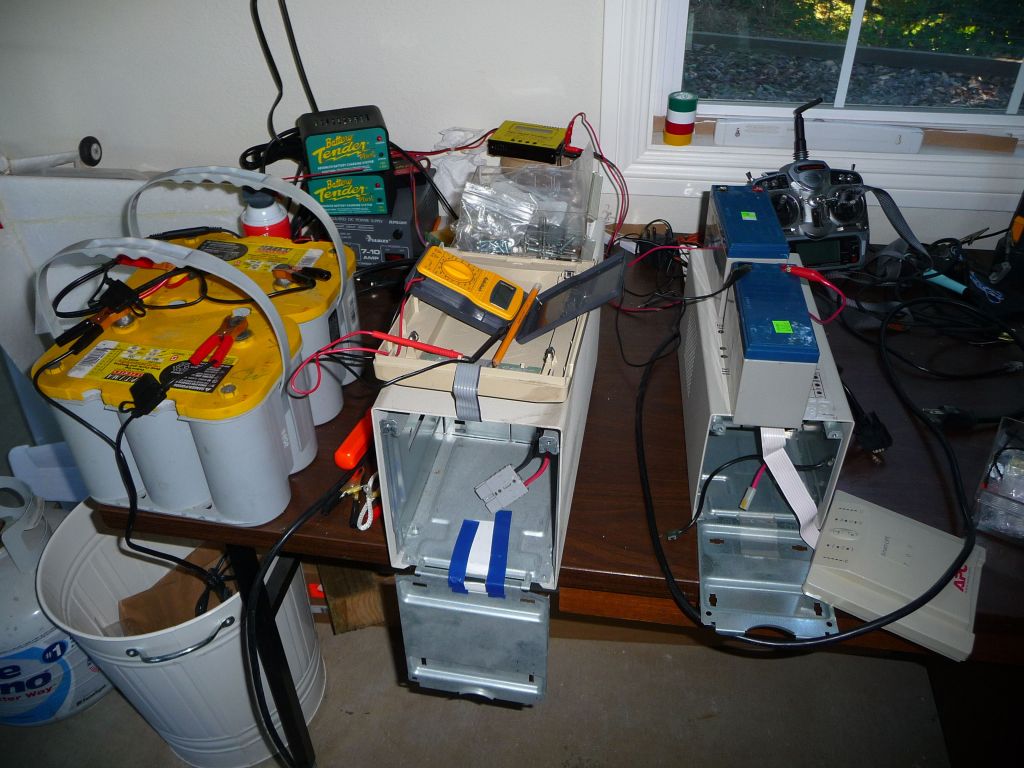
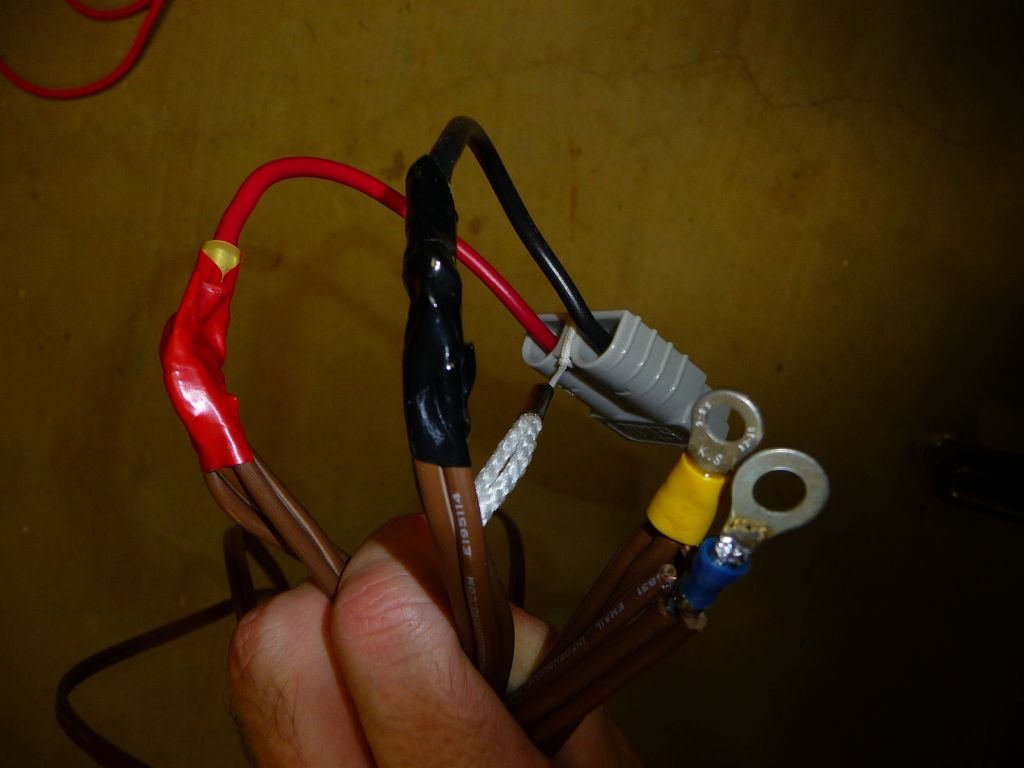
first I quadrupled the wire.
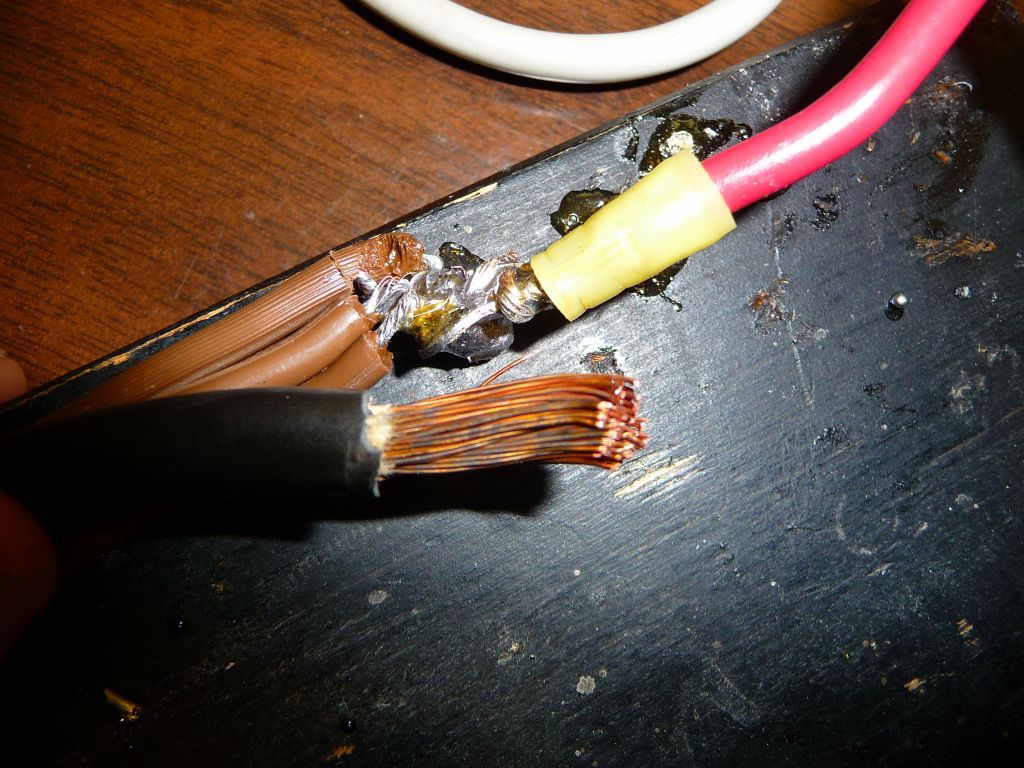
this is a big ass gauge jumper cable
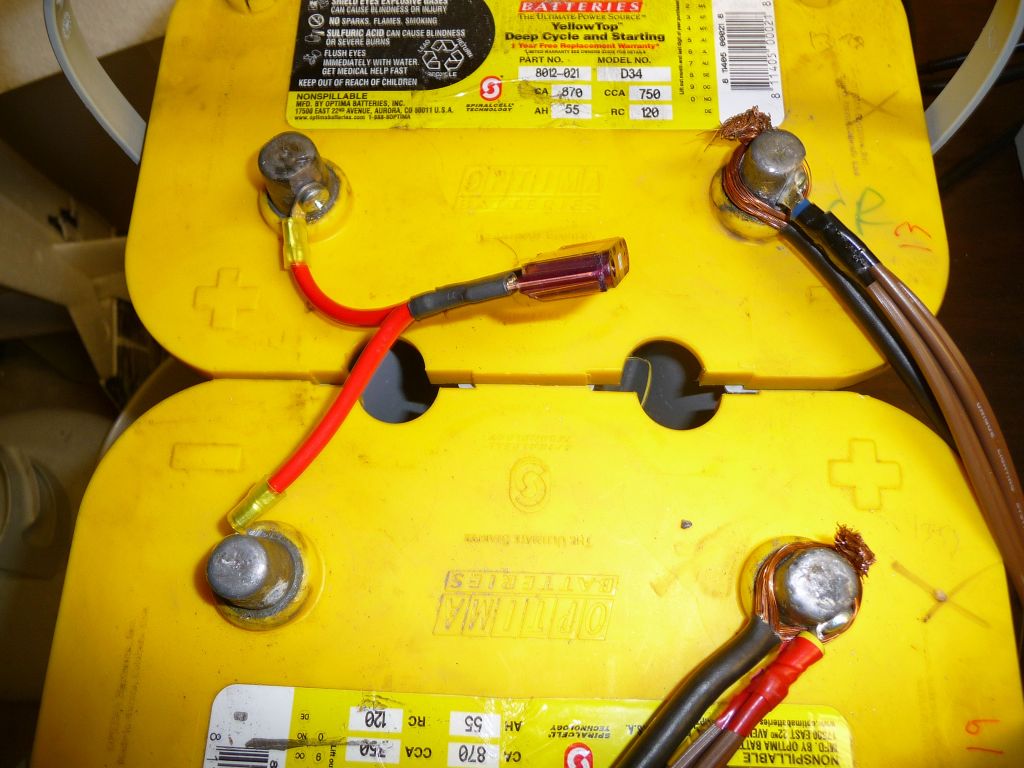
what it looks like connected
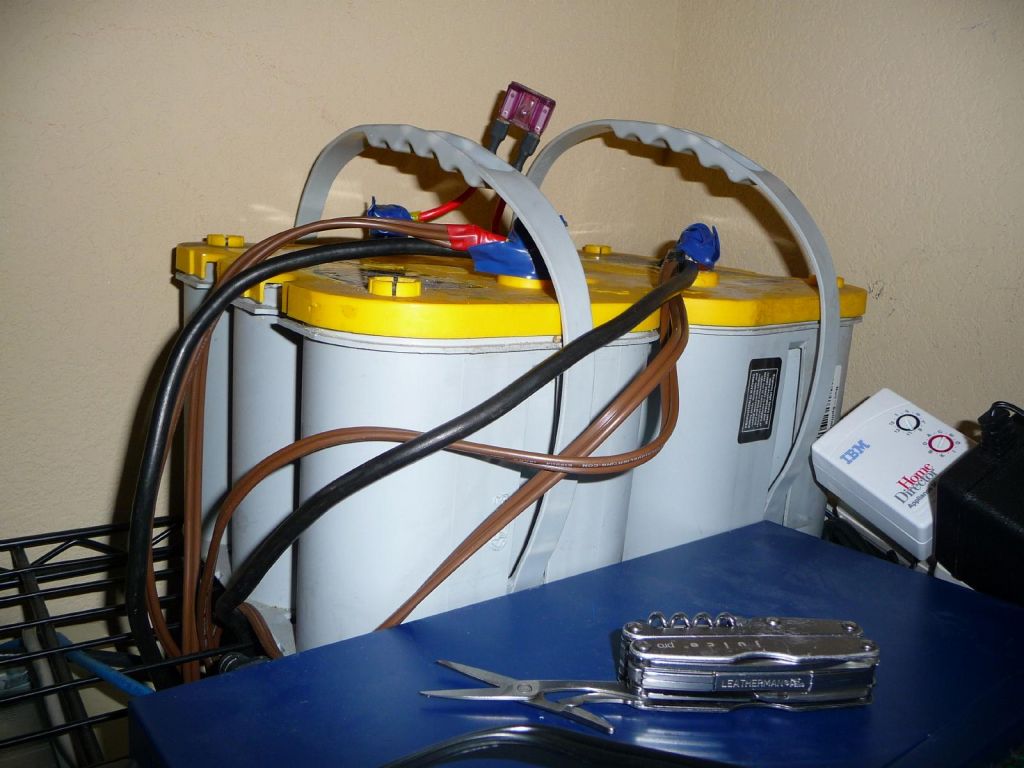
Anyway, even if this isn't quite the runtime I was hoping for, and it seems hard to find any UPS with a good VA rating by using a single 12V battery (not too surprising due to the amp problem I pointed out), this is still pretty cool. |